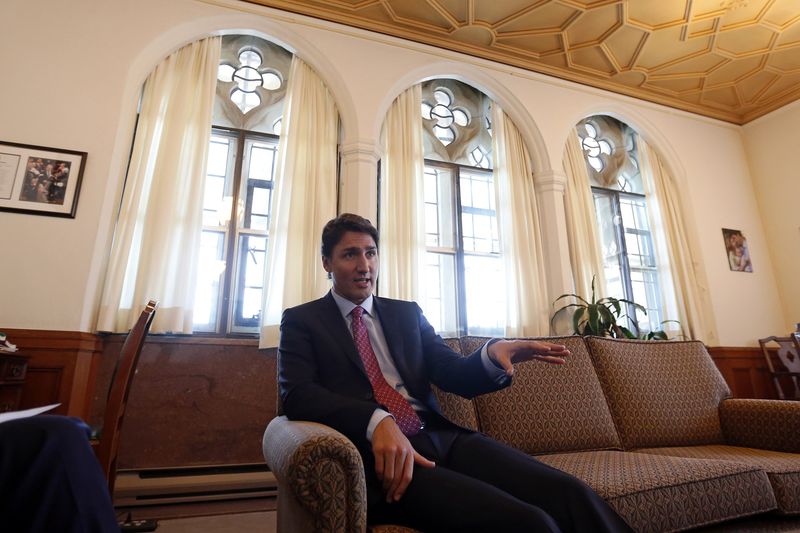(Adds details of debate, analysis)
By Randall Palmer and David Ljunggren
OTTAWA, Aug 6 (Reuters) - Liberal leader Justin Trudeau,
needing a boost to revive his campaign to become Canada's prime
minister, came out swinging in an election debate on Thursday,
but his opponents delivered their own blows, suggesting there
was no clear winner.
Ahead of the debate, most polls showed the ruling
Conservatives slightly trailing the official opposition New
Democrats ahead of the Oct. 19 election, with the Liberals well
behind.
Trudeau, derided by both Prime Minister Stephen Harper and
New Democrat leader Thomas Mulcair as not being ready to take
power, said the Conservatives had failed to manage a sluggish
economy suffering from low oil prices.
"Canadians across this country know that times are tough.
And the fact is, you have become completely disconnected from
the reality that people are facing," Trudeau told Harper.
The Conservatives, in power since 2006, are seeking a rare
fourth consecutive mandate.
Ipsos pollster Darrell Bricker said Trudeau, the 43-year-old
son of former Prime Minister Pierre Trudeau, had fallen short of
making a major breakthrough.
"Trudeau really had to break out. (I) didn't see it. He
fought hard though," he said.
The Liberals are competing with the New Democrats for the
same center-left segment of the electorate, and Trudeau also
took several swings at Mulcair.
Pollster Nik Nanos said none of the participants had landed
a killer blow, though Trudeau and Green Party leader Elizabeth
May, who also took part, looked the most comfortable, he added.
May, whose party now has just two legislators, also won praise
on social media for a strong debate performance.
"With an election this long, it is hard to see the impact of
a debate two months away from election date," Nanos said.
Harper acknowledged the economy is facing challenges but
said only the low-tax center-right Conservatives could be
trusted to confront the problems.
"The way you deal with this is by sticking with ... a
prudent plan that is working rather than go to a plan of high
taxes and high debt and high deficits which is failing
everywhere else," he said.
Harper accused both main opposition parties of wanting to
raise spending by tens of billions of dollars, which he said was
unsustainable.
Mulcair, whose party has never held power at the federal
level, said that Canada had lost 400,000 well-paying
manufacturing jobs.
"Obviously Mr Harper, we can't afford another four years of
you," he said.
Both Harper and Trudeau attacked Mulcair for his position
that the predominantly French-speaking province of Quebec should
be allowed to separate with a simple majority vote.
After Quebec came within a hair's breadth of voting to split
from Canada in 1995, the then-Liberal government passed a law
saying a clear majority would have to vote in favor.
"Why would we go down the road of talking about how we can
best break up the country when in fact Quebeckers clearly do not
want to do that?" said Harper.
Don Martin, host of a televised daily political show on CTV,
observed: "No killer zingers. Nobody knocked out. No serious
flubs."
(Editing by Jeffrey Hodgson, Alan Crosby and Ken Wills)
